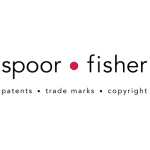For many years it was not possible to register trademarks in Somalia, an east African state with a population of roughly 16 million. This was a consequence of a brutal civil war that started in 1991 and continued for many years. The best that international brand owners could do was publish cautionary notices in Somalian newspapers.
Things have, however, been changing for some time. In December 2019, it was announced that the Registry, the Somali Intellectual Property Office (SIPO), had re-opened. The pre-1991 legislation is again recognised, although we understand that new IP legislation (with transitional provisions that will recognise existing rights) is in the pipeline. The pre-1991 legislation is the Trade Mark Law No. 3 of January 22 1955, amended by Law No. 33 of January 18 1975 and Law No. 3 of December 8 1987.
In short, trademark registration is again possible.
Here are some important features of the current trademark registration system:
The working language of SIPO is English;
As Somalia is not a member of the Paris Convention, priority claims are not possible;
A pre-filing search is mandatory – this search will be conducted by SIPO;
The Nice classification system is followed and a separate application must be filed for each class of goods and/or services;
In compliance with local Islamic law, it is not possible to cover alcoholic or pork products;
As for formalities, the following documentation is required: a power of attorney (simply signed); a copy of the applicant’s business registration certificate or equivalent; a copy of a home or foreign trademark registration; a company profile setting out the applicant’s business activities and jurisdiction of operation. All these documents must be in English or accompanied by an English translation;
Trademark applications are examined on absolute and relative grounds;
Trademark applications are advertised online;
There is provision for opposition – the opposition term is 45 days;
The registration term is 10 years; and
There is provision for trademark infringement claims. Remedies available to the trademark owner include damages and an order for the destruction of infringing goods.
The situation regarding the pre-1991 registrations is unclear. Some believe that these registrations are no longer recognised. Others claim that these registrations can be revalidated on payment of an official fee of $1,000 for each renewal term. This is a grey area and you should speak to a professional specialising in African IP if you wish to explore this issue further.
The fact that the trademark registration system is again functioning is very good news, especially for those international brand owners who think that post-civil war Somalia may be a country worth investing in!
Matthew Costard
Partner, Spoor & Fisher











